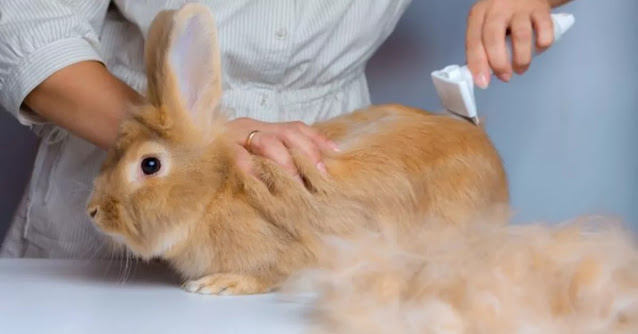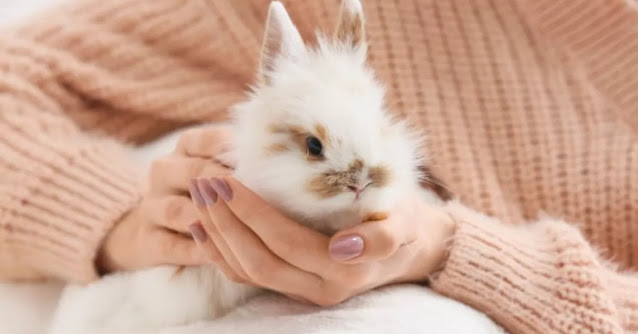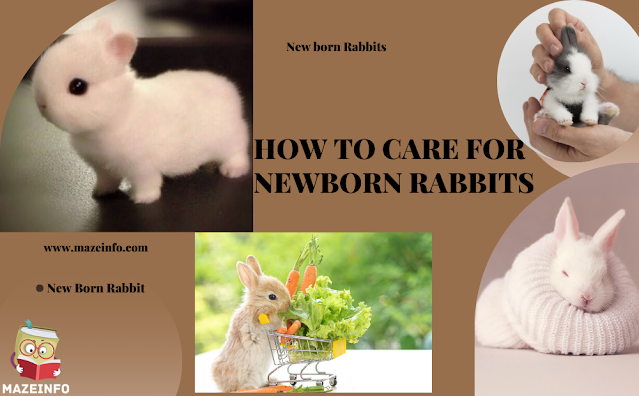Bringing bunny for newborn into your care is a delicate responsibility that requires attention, patience, and a genuine commitment to their well-being. As these tiny creatures embark on the journey of life, it becomes paramount for caregivers to understand the intricacies of their needs and provide a nurturing environment. “How to Care for Newborn Rabbits” serves as a guiding beacon for those stepping into the realm of rabbit parenthood, offering insights into the essential aspects of their early days. From maintaining proper nutrition to creating a safe and warm habitat, this guide aims to empower you with the knowledge needed to ensure the health and happiness of your newest furry companions. Let’s delve into the art of caring for newborn rabbits, unlocking the secrets to fostering their growth and creating a bond that lasts a lifetime.
Nesting Environment
Caring for newborn rabbits, also known as kits, requires attention to various aspects of their environment.
Nest Construction
Upon the arrival of bunny for newborn, one of the primary concerns is providing a suitable nesting environment that mimics the warmth and security of their mother’s burrow in the wild. Constructing a cozy nest is essential for the well-being and development of the fragile young ones. A combination of soft materials, such as hay or straw, helps create a comfortable and insulated space where the newborn rabbits can thrive.
Maintaining Optimal Conditions for Growth
Newborn rabbits are particularly sensitive to temperature fluctuations, and maintaining a stable and warm environment is crucial for their survival. The nest should be placed in an area with a controlled temperature, shielded from drafts, and away from direct sunlight. Monitoring the ambient temperature regularly ensures that the newborns are neither too cold nor too hot, promoting their healthy growth and development.
Nesting Box
- Use a nesting box with high sides to prevent the kits from crawling out.
- Line the box with soft bedding material such as hay or straw. Ensure the bedding is clean and dry.
Monitoring and Interaction
Regular monitoring and interaction with the newborn bunny are vital components of creating a nurturing environment. Observing their behavior, checking for signs of distress, and ensuring proper
Feeding Schedule
Feeding are essential tasks. While it’s crucial to respect their natural instincts and limit unnecessary interference, gentle handling during the critical early days helps foster trust and a sense of security in their new environment. By carefully attending to their needs, the newborn bunny are more likely to thrive and grow into healthy, happy individuals.
Newborn Rabbit Feeding Schedule
| Age (Days) | Frequency | Amount per Feeding | Notes |
| 1-7 | 6-8 times | 5-10 ml | Mother’s milk or a suitable rabbit milk replacer. Feed every 2-3 hours. |
| 8-14 | 5-7 times | 10-15 ml | Gradually increase the amount per feeding. Feed every 3-4 hours. |
| 15-21 | 4-6 times | 15-20 ml | Continue increasing the amount and spacing out feedings. |
| 22-28 | 3-5 times | 20-25 ml | Introduce small amounts of solid food (pellets) soaked in water. |
| 29-35 | 3 times | 25-30 ml | Continue with solid food and decrease milk feedings. |
| 36+ | 2 times | 30-40 ml | Gradually transition to a diet of solid food and fresh water. |
Age
- 0-2 weeks: Kits rely solely on their mother’s milk during this period.
- 2-3 weeks: Start introducing solid food, in addition to mother’s milk.
- 3-6 weeks: Gradually decrease reliance on the mother’s milk and increase solid food.
Mother’s Milk
If possible, allow the kits to nurse from their mother for the first few weeks. Mother’s milk provides essential nutrients and antibodies. If the mother is not available, you can use kitten milk replacer (KMR) as a substitute. Do not use cow’s milk as it can cause digestive issues.
Frequency
- Feed the kits every 2-3 hours for the first two weeks of life.
- As they grow, you can gradually increase the time between feedings
Water
Introduce a shallow water bowl when the kits start eating solid food. Make sure it’s low enough for them to access easily. Make sure the kits have access to fresh water at all times. Water is crucial for their overall health and digestion.
Hygiene and Grooming

Ensuring proper hygiene and grooming for newborn bunny rabbit is crucial for their health and well-being. Newborn rabbits, also known as kits, are particularly vulnerable, and their care requires attention to detail. The following paragraph provides an overview of essential practices for maintaining hygiene and grooming newborn rabbits:
Gentle Cleanliness
Newborn bunny rabbit are generally self-sufficient in grooming, but a soft, damp cloth can be used to gently clean their fur if needed. Focus on areas like eyes, nose, and genitals, ensuring a warm environment during the process.
Fur Care for Tiny Bunnies
Though not as extensive as with some breeds, regular brushing with a soft brush helps prevent matting and encourages healthy hair growth. This simple routine also fosters a positive bond between you and your newborn rabbit.
Nail Trimming Tip
Start early with nail trims to accustom your newborn rabbit. Use small animal nail clippers, being careful not to cut into the quick. This routine ensures their comfort, prevents scratches, and sets the stage for a lifetime of good hygiene practices.
Grooming
While newly born bunnies don’t require extensive grooming, you can use a soft brush to gently groom their fur. This helps stimulate blood circulation and keeps the fur clean.
Also, Read More: Exploring the Latest Health Tech Innovations?
Monitoring Health
Monitoring the health of newborn rabbits is crucial to ensure their well-being and early detection of any potential issues. One of the primary aspects to focus on is their overall condition and behavior. Newborn rabbits, also known as kits, are fragile, and close observation is essential. Here are some key points to consider when monitoring the health of newborn rabbits:
Neonatal Rabbit Vital Signs: A Quick Guide
Keeping a close eye on vital signs like heart rate, respiratory rate, and body temperature is essential for monitoring the health of newly born bunnies. Understanding normal ranges and spotting any deviations early on can be crucial in ensuring their well-being.
Weight Monitoring
Regularly weigh the newborn rabbit to ensure steady growth. Sudden weight loss or lack of weight gain could be a sign of health issues.
Nutritional Monitoring for Newborn Rabbits
Proper nutrition is key for the development of rabbit new born. Observing feeding patterns, ensuring adequate colostrum intake, and managing the transition to milk replacers are vital aspects of their early care. Regular checks on feeding behavior help catch any potential issues promptly.
Optimal Environment for Newborn Rabbits
Creating a suitable habitat is critical for the health of newborn rabbits. Maintaining a warm and draft-free nest, controlling humidity, and ensuring cleanliness are essential factors. Observing the rabbits in their environment helps identify and address any stressors, contributing to their overall well-being.
Temperature Control
Newborn rabbits, or kits, are highly sensitive to temperature changes. To ensure their well-being, maintain a warm environment between 85-90°F (29-32°C) during their first week of life. Use a heat source like a lamp or heating pad, allowing them to regulate their proximity for comfort. Monitoring their behavior is crucial to prevent both cold exposure and overheating. Proper temperature control is essential for the health and development of rabbit new born.
Socialization

Newborn bunny, or kits, start life blind, hairless, and dependent on their mother’s care. They rely on her milk for essential nutrients and gradually grow more independent, exploring and interacting with their siblings in the nest under the watchful eye of their attentive mother. This early period is crucial for their socialization and sets the stage for their future development.
Veterinary Care
Caring for just born rabbit, or kits, requires attention to key factors. Provide a warm nesting area with soft materials and monitor kits for activity and nursing. If needed, consult a vet for milk replacers. Ensure an appropriate temperature and a clean environment to prevent infections. Regular weigh-ins and health checks are vital. Minimize handling and schedule vet visits for overall well-being. Introduce solid food gradually, and monitor the weaning process carefully.
Transition to Solid Food

Rabbits typically start nibbling on solid food around three weeks of age. The weaning process for new born rabbit care involves gradually introducing solid foods while decreasing their dependence on the mother’s milk. Here’s a step-by-step guide for transitioning newborn rabbits to solid food:
Solid Food Transition for Newborn Rabbits
As your new born rabbit care grows, transitioning from a diet of mother’s milk or formula to solid food becomes a crucial developmental milestone. This process marks the beginning of a more independent feeding journey for your furry friend. Understanding the right time to introduce solid foods and selecting appropriate options are essential aspects of ensuring a smooth transition.
Signs of Readiness and Choosing the Right Solid Foods
Observing your baby rabbit’s behavior and physical cues is vital in determining when they are ready for solid foods. Common signs include increased activity, exploring their surroundings, and a diminishing interest in nursing. Choosing the right solid foods is equally important. Opt for high-quality pellets specifically designed for young rabbits, rich in essential nutrients for their growth and well-being.
Gradual Introduction and Mixing with Mother’s Milk or Formula
To ease the transition, introduce solid foods gradually while continuing to provide access to mother’s milk or a suitable formula. Begin by offering small amounts of pellets alongside their regular milk diet. This method helps the baby rabbit adapt to the new textures and flavors, ensuring that they receive a balanced diet during this crucial developmental stage.
Monitoring and Adjusting the Transition Process
Careful monitoring of your baby rabbit’s response to solid foods is key. Keep an eye on their weight, energy levels, and overall health. If any signs of digestive issues or reluctance to eat solid foods arise, consider adjusting the transition pace. Consulting with a veterinarian experienced in rabbit care can provide personalized guidance and address any concerns, ensuring a successful and healthy transition to solid food for your newborn bunny.
Conclusion
Caring for newborn rabbits requires dedication, knowledge, and a gentle touch. Providing a warm and safe environment, along with a proper diet, is crucial during the first few weeks of their lives. Regular monitoring of their health, weight, and behavior is essential to identify any potential issues early on. As the rabbits grow, gradually introducing solid foods and providing a stimulating environment will contribute to their overall well-being. Remember, seeking guidance from a veterinarian with experience in rabbit care is always advisable. With proper care and attention, you can ensure that your newborn bunny thrive and develop into healthy, happy adults.
Frequently Asked Questions (FAQs)
Q: What should newborn rabbits be fed?
Ans: Newborn rabbits should be fed their mother’s milk, which provides essential nutrients. If the mother is unavailable, consult a veterinarian for a suitable rabbit milk replacement.
Q: How often should I feed newborn rabbits?
Ans: Feed newborn rabbits every 2-3 hours, including during the night. As they grow, you can gradually increase the time between feedings.
Q: How do I keep newborn rabbits warm?
Ans: Keep the environment warm, around 85-90°F (29-32°C) for the first week, then gradually decrease the temperature. Use a heating pad or heat lamp, ensuring they have a cooler area in the enclosure.
Q: When can I start introducing solid food?
Ans: At around two weeks of age, you can introduce alfalfa hay, pellets, and fresh greens. Gradually transition from milk to solid food as they become more independent.
Q: How do I clean newborn rabbits?
Ans: Use a soft, damp cloth to clean their hindquarters gently. Be cautious not to separate them from their mother for too long, as newborn rabbits need to stay warm.
Q: When should I start weaning newborn rabbits?
Ans: Begin weaning around 3-4 weeks of age. Introduce more solid food, and reduce the frequency of milk feedings. Complete weaning usually occurs by 6-8 weeks.



